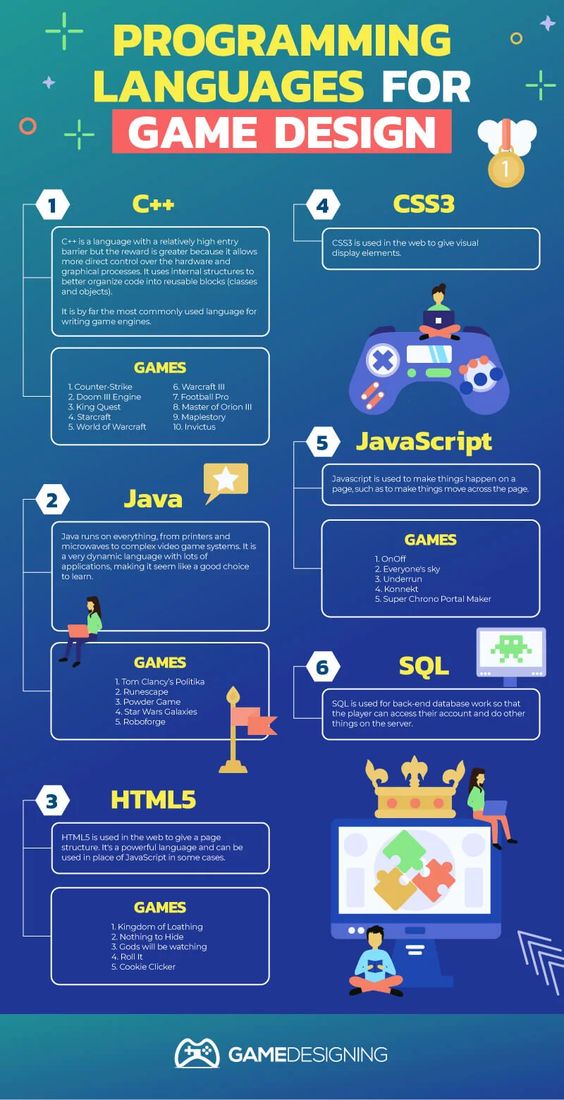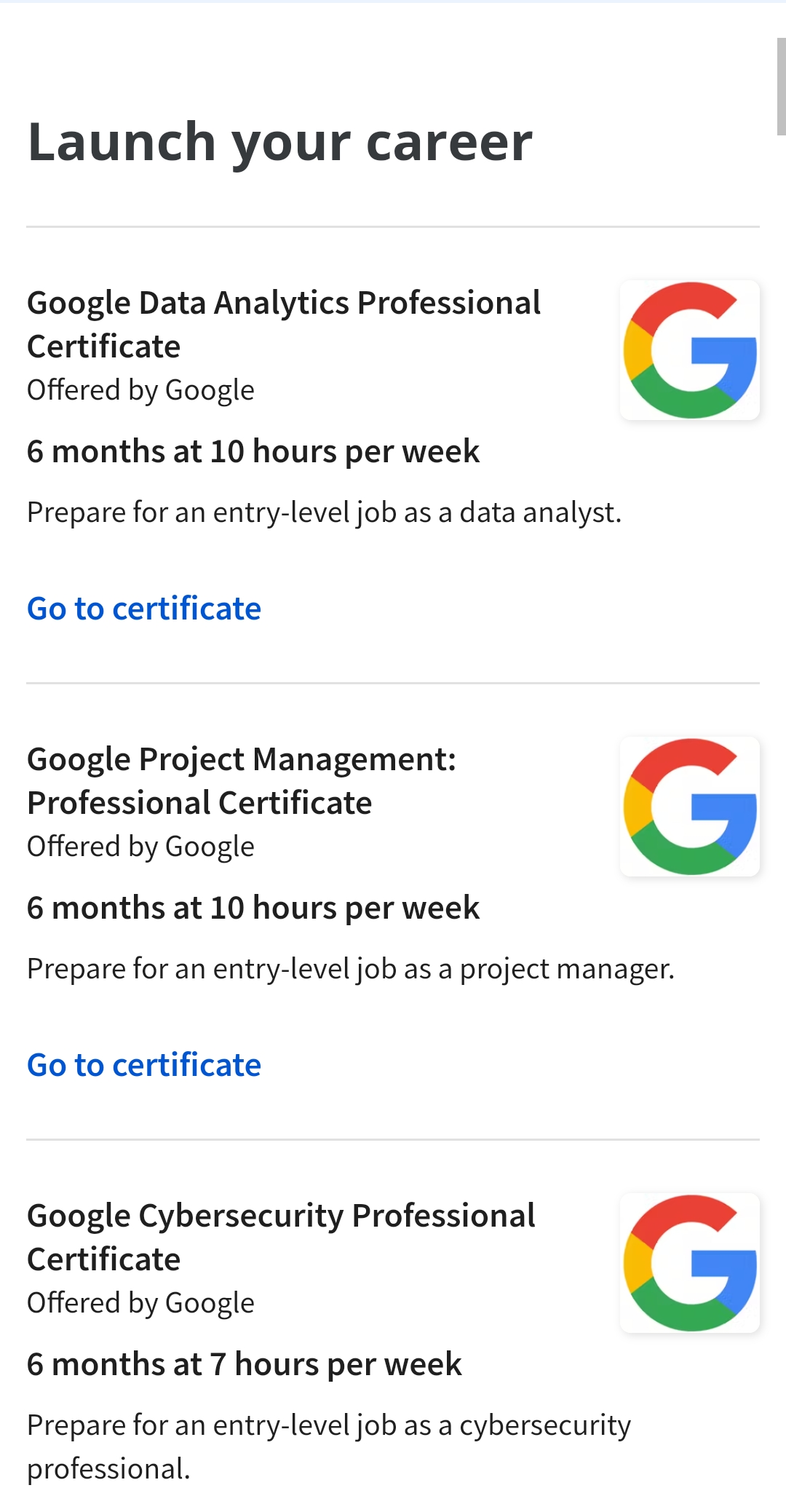As a software engineer, you may be interested to be a game developer and may want to pursue a career in this exciting field. Game development is a complex process that requires a significant amount of technical expertise, creativity, and problem-solving skills. In this article, we will discuss a game developer’s roadmap specifically tailored to software engineers.
Fundamentals of Programming
Before diving into the specifics becoming a game developer, it’s essential to learn the fundamentals of programming. Familiarize yourself with basic programming concepts such as variables, data types, control structures, functions, and object-oriented programming. In Coursaya, we offer plenty of courses covering nearly every possible field.
We recommend the following courses:
Why we chose C and Java?
If you’re planning to become a game developer, It’s best to use C (including C# and C++) or Java. Yes you can learn programming in different languages. But these allow you to learn the programming fundamentals. In your professional career, you might not work with these languages. But the thing is, during the process of learning, you will learn different Programming Languages along the way. As mentioned, these provide a very good step that will help you build important fundamentals.
But keep in mind, you can start with any programming language of your selection, Ruby, Python, C++. It makes no great difference by the end of the day.
Data Structures: Data structures are ways of organizing and storing data. They include arrays, linked lists, stacks, queues, trees, and graphs. Understanding data structures is important because they can help you efficiently manage large amounts of data and perform complex operations.
We recommend the following FREE courses:
Algorithms: Algorithms are a set of instructions that solve a particular problem or perform a specific task. They include search algorithms, sorting algorithms, graph algorithms, and many others. Understanding algorithms is important because it can help you solve problems efficiently and optimize your code.
We recommend the following courses:
- Algorithms for Searching, Sorting, and Indexing
- Greedy Algorithms, Minimum Spanning Trees
- Analysis of Algorithms
- Advanced Algorithms and Complexity
Object-Oriented Programming: Object-oriented programming (OOP) is a programming paradigm that emphasizes the use of objects to model real-world concepts. OOP includes concepts like classes, objects, encapsulation, inheritance, and polymorphism. Understanding OOP is important because it allows you to write more modular, reusable, and maintainable code.
We Recommend the following FREE courses:
- Object-Oriented Programming Concepts
- Introduction to Java and Object-Oriented
- Intermediate Object-Oriented Programming with
To learn programming fundamentals, you can start with an introductory programming course or tutorial in a language of your choice. Some popular languages for beginners include Python, Java, and Ruby. Once you have a basic understanding of programming concepts, you can start learning about data structures, algorithms, and object-oriented programming.
There are many online resources available to help you learn programming fundamentals, including online courses, tutorials, and books. It’s also important to practice writing code on your own to reinforce your understanding of programming concepts and build your coding skills. As you gain more experience, you can start exploring more advanced topics like software design patterns, multithreading, and network programming.
We Recommend the following FREE Courses:
- Endless Runner Game using Unity Engine and C#
- C++ Programming for Unreal Game Development
- Intermediate Object-Oriented Programming for Unity Games
- Intermediate Object-Oriented Programming for Unreal Games
Develop Game Mechanics
Once you have a strong foundation in programming, you can start developing the game mechanics. This involves creating the rules of the game, player actions, interactions with the game world, and artificial intelligence. It is essential to ensure that the game mechanics are well-balanced, intuitive, and engaging for the player.
We Recommend the following FREE courses:
- Games, Sensors and Media
- Game Design and Development 1: 2D Shooter
- Game Design and Development 2: 2D Platformer
- Current Gen 3D Game Prop Production
- Game Design and Development 4: 3D Platformer
- Low Poly Art For Video Games
- Pixel Art for Video GamesGame Design and Development with Unity
- Game Design and Development with Unity
Design and Implement Game Levels
The next step for a game developer is to design and implement the game levels. This involves creating the game world, including the environment, characters, and objects, and designing the game progression. Software engineers must ensure that the game levels are optimized for performance and that the game runs smoothly on different platforms.
We Recommend the following courses:
Integrate Graphics and Audio
Graphics and audio are crucial components of a game and play a significant role in creating a realistic and immersive experience. Game developers should work closely with graphic designers and sound engineers to integrate high-quality graphics and audio into the game.
We Recommend the following courses:
Test and Debug
Testing and debugging are essential to ensure that the game is functioning as intended and is free from bugs and errors. This involves testing the game on different platforms, such as PC, mobile, and consoles, and ensuring that it runs smoothly and without glitches.
We Recommend the following courses:
Publish and Market
Once the game is developed, tested, and debugged, it is time to publish and market it. This involves creating a marketing strategy, including social media campaigns, influencer outreach, and press releases, and publishing the game on various platforms, such as Steam, Apple Store, and Google Play.
In conclusion, game development is a challenging but rewarding field for software engineers. By following this roadmap, you can develop high-quality games that are engaging and enjoyable for players.


